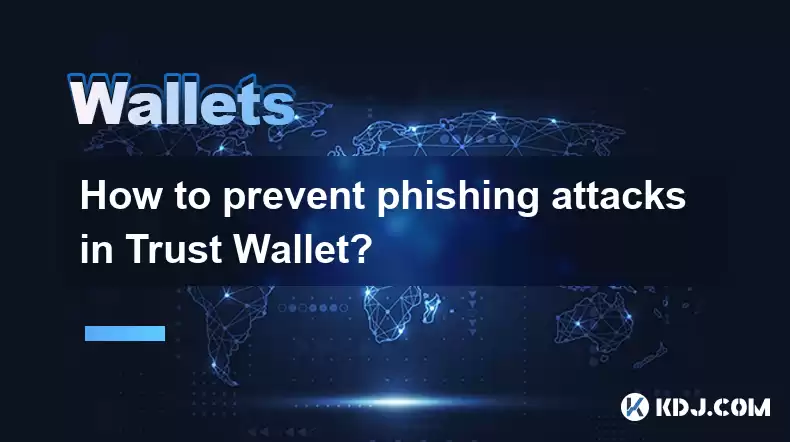-
 Bitcoin
Bitcoin $119000
-2.21% -
 Ethereum
Ethereum $4315
1.01% -
 XRP
XRP $3.151
-3.11% -
 Tether USDt
Tether USDt $0.0000
0.00% -
 BNB
BNB $808.5
-0.71% -
 Solana
Solana $175.8
-4.21% -
 USDC
USDC $0.9999
0.00% -
 Dogecoin
Dogecoin $0.2250
-3.92% -
 TRON
TRON $0.3469
1.77% -
 Cardano
Cardano $0.7818
-3.81% -
 Chainlink
Chainlink $21.47
-2.10% -
 Hyperliquid
Hyperliquid $43.30
-6.81% -
 Stellar
Stellar $0.4370
-2.84% -
 Sui
Sui $3.682
-4.40% -
 Bitcoin Cash
Bitcoin Cash $590.8
2.67% -
 Hedera
Hedera $0.2484
-5.20% -
 Ethena USDe
Ethena USDe $1.001
0.00% -
 Avalanche
Avalanche $23.10
-4.29% -
 Litecoin
Litecoin $119.2
-3.96% -
 Toncoin
Toncoin $3.409
0.90% -
 UNUS SED LEO
UNUS SED LEO $9.016
-1.29% -
 Shiba Inu
Shiba Inu $0.00001304
-3.82% -
 Uniswap
Uniswap $11.18
1.33% -
 Polkadot
Polkadot $3.913
-3.51% -
 Cronos
Cronos $0.1672
-3.08% -
 Dai
Dai $1.000
0.02% -
 Ethena
Ethena $0.7899
-4.70% -
 Bitget Token
Bitget Token $4.400
-1.23% -
 Pepe
Pepe $0.00001132
-5.93% -
 Monero
Monero $257.9
-6.44%
How to prevent phishing attacks in Trust Wallet?
Phishing attacks on Trust Wallet users often involve fake emails or websites; always verify URLs and never share your seed phrase to stay secure.
Mar 28, 2025 at 03:14 am

Understanding Phishing in the Context of Trust Wallet
Trust Wallet, like any other cryptocurrency wallet, is a prime target for phishing attacks. Phishing is a deceptive practice where attackers try to trick you into revealing your seed phrase, private keys, or other sensitive information. They often impersonate legitimate entities like Trust Wallet support or popular cryptocurrency projects. This information grants them complete control over your cryptocurrency holdings. Staying vigilant and understanding common tactics is crucial for protection.
Recognizing Phishing Attempts Targeting Trust Wallet Users
Phishing attacks often arrive through various channels. Be wary of unsolicited emails, SMS messages, or social media messages that claim to be from Trust Wallet or a related service. These messages frequently contain links to fake websites designed to mimic the official Trust Wallet interface. These fraudulent sites might request login credentials, seed phrases, or other sensitive information under the guise of account verification, software updates, or other seemingly legitimate reasons. Always double-check the sender's identity and the URL before clicking any links.
Steps to Take to Secure Your Trust Wallet from Phishing
Verify URLs Carefully: Before entering any sensitive information, meticulously check the website's URL. Look for slight misspellings or suspicious additions to the official Trust Wallet domain name (trustwallet.com). Legitimate websites will have a padlock icon in the address bar, indicating a secure HTTPS connection.
Beware of Suspicious Emails and Messages: Trust Wallet will never ask for your seed phrase, private keys, or password via email or SMS. If you receive such a request, it's almost certainly a phishing attempt. Report the message and delete it immediately.
Enable Two-Factor Authentication (2FA): 2FA adds an extra layer of security by requiring a second verification code in addition to your password. This makes it significantly harder for attackers to access your account even if they obtain your password. Enable this feature within your Trust Wallet settings.
Regularly Update Your App: Keep your Trust Wallet app updated to the latest version. Updates often include security patches that protect against newly discovered vulnerabilities. Check for updates regularly through your app store.
Use Strong and Unique Passwords: Create a strong, unique password for your Trust Wallet account. Avoid using easily guessable passwords or reusing passwords across multiple accounts. Use a password manager to help generate and store strong passwords securely.
Be Skeptical of Unexpected Offers: Be wary of unexpected offers, giveaways, or airdrops that seem too good to be true. These are often used as lures in phishing schemes. Always verify the legitimacy of such offers through official channels before participating.
Never Share Your Seed Phrase: Your seed phrase is the key to your cryptocurrency holdings. Never share it with anyone, including individuals claiming to be Trust Wallet support. Losing your seed phrase means losing access to your funds permanently. Trust Wallet will never request your seed phrase.
Use a Reputable Antivirus: Install and maintain a reputable antivirus program on your device. This can help detect and block malicious software that might be used to steal your information.
Recognizing Phishing Websites Mimicking Trust Wallet
Phishing websites are designed to look convincingly like the real Trust Wallet website. However, there are subtle differences you can look for. Pay close attention to the URL, looking for misspellings or unusual characters. Examine the website's design and layout carefully. Legitimate websites usually have a professional appearance, while phishing sites often have poor grammar, spelling errors, and inconsistencies in design.
What to Do if You Suspect a Phishing Attempt
If you suspect you've been targeted by a phishing attempt, take immediate action. Do not click any links or provide any personal information. Change your Trust Wallet password immediately. If you believe your account has been compromised, contact Trust Wallet support through their official channels to report the incident. Never contact support through links provided in suspicious emails or messages. Find their official contact information on their website.
Staying Informed About Cryptocurrency Security Threats
Staying informed about the latest cryptocurrency security threats is crucial for protecting yourself. Follow reputable cryptocurrency news sources and security blogs to stay up-to-date on emerging scams and phishing techniques. Regularly review your account activity for any suspicious transactions.
Frequently Asked Questions
Q: What should I do if I've already entered my seed phrase on a suspicious website?
A: Immediately change your seed phrase and contact Trust Wallet support through official channels. You should also report the phishing site to the appropriate authorities. The sooner you act, the better your chances of mitigating the damage.
Q: How can I be sure I'm on the legitimate Trust Wallet website?
A: Always access Trust Wallet through the official app store (Google Play or Apple App Store) or the official website (trustwallet.com). Verify the URL carefully, looking for misspellings or unusual characters. Look for the padlock icon in the address bar, indicating a secure HTTPS connection.
Q: Is Trust Wallet responsible for recovering my funds if I fall victim to a phishing attack?
A: No. Trust Wallet is not responsible for losses due to phishing attacks. It is your responsibility to protect your seed phrase and private keys. They can offer support in reporting the incident, but they cannot recover your lost funds.
Q: How often should I update my Trust Wallet app?
A: You should update your Trust Wallet app as soon as an update is available. Updates often include crucial security patches that protect against newly discovered vulnerabilities.
Q: What are the most common phishing tactics used against Trust Wallet users?
A: Common tactics include fake emails or SMS messages claiming to be from Trust Wallet support, fake websites mimicking the official Trust Wallet interface, and fraudulent offers or giveaways. Always be skeptical and verify information through official channels.
Disclaimer:info@kdj.com
The information provided is not trading advice. kdj.com does not assume any responsibility for any investments made based on the information provided in this article. Cryptocurrencies are highly volatile and it is highly recommended that you invest with caution after thorough research!
If you believe that the content used on this website infringes your copyright, please contact us immediately (info@kdj.com) and we will delete it promptly.
- Arc Blockchain: Circle's Layer-1 Play Amidst $428 Million Loss
- 2025-08-12 20:30:13
- XRP Price: Riding the Bull Cycle Wave or Hitting a Wall?
- 2025-08-12 20:50:12
- Cloud Mining in 2025: Chasing Passive Income and High Returns
- 2025-08-12 20:30:13
- XRP Price Forecast: Can XRP Hit $8, $12.60, or Even $100? Surge Drivers Analyzed
- 2025-08-12 21:10:13
- SUI Analyst Predicts Potential 7x Setup: Don't Ignore This Crypto!
- 2025-08-12 21:50:12
- Solana Price, Meme Coins, and 100x Gains: What's the Hype?
- 2025-08-12 20:50:12
Related knowledge

How to manage your portfolio in Exodus wallet
Aug 08,2025 at 10:07pm
Understanding the Exodus Wallet InterfaceThe Exodus wallet is a non-custodial cryptocurrency wallet that supports a wide range of digital assets. When...

How to reset your MetaMask password
Aug 08,2025 at 01:28pm
Understanding the MetaMask Password Reset ProcessMany users confuse the MetaMask password with the seed phrase or private key, but they serve differen...

How to buy Dogecoin on MetaMask
Aug 08,2025 at 03:42am
Understanding Dogecoin and MetaMask CompatibilityDogecoin (DOGE) is a popular meme-based cryptocurrency that operates on its own blockchain, originall...

How to switch between networks in Trust Wallet
Aug 09,2025 at 11:07am
Understanding Network Switching in Trust WalletSwitching between networks in Trust Wallet allows users to manage assets across different blockchains, ...

How to set up Face ID for MetaMask
Aug 12,2025 at 02:42am
Understanding Face ID and Its Role in MetaMask SecurityMetaMask is a widely used cryptocurrency wallet that allows users to interact with the Ethereum...

How to set up Face ID for MetaMask
Aug 11,2025 at 09:28am
Understanding Face ID and Its Role in MetaMask SecurityFace ID is a biometric authentication system developed by Apple that uses facial recognition to...

How to manage your portfolio in Exodus wallet
Aug 08,2025 at 10:07pm
Understanding the Exodus Wallet InterfaceThe Exodus wallet is a non-custodial cryptocurrency wallet that supports a wide range of digital assets. When...

How to reset your MetaMask password
Aug 08,2025 at 01:28pm
Understanding the MetaMask Password Reset ProcessMany users confuse the MetaMask password with the seed phrase or private key, but they serve differen...

How to buy Dogecoin on MetaMask
Aug 08,2025 at 03:42am
Understanding Dogecoin and MetaMask CompatibilityDogecoin (DOGE) is a popular meme-based cryptocurrency that operates on its own blockchain, originall...

How to switch between networks in Trust Wallet
Aug 09,2025 at 11:07am
Understanding Network Switching in Trust WalletSwitching between networks in Trust Wallet allows users to manage assets across different blockchains, ...

How to set up Face ID for MetaMask
Aug 12,2025 at 02:42am
Understanding Face ID and Its Role in MetaMask SecurityMetaMask is a widely used cryptocurrency wallet that allows users to interact with the Ethereum...

How to set up Face ID for MetaMask
Aug 11,2025 at 09:28am
Understanding Face ID and Its Role in MetaMask SecurityFace ID is a biometric authentication system developed by Apple that uses facial recognition to...
See all articles

























































































